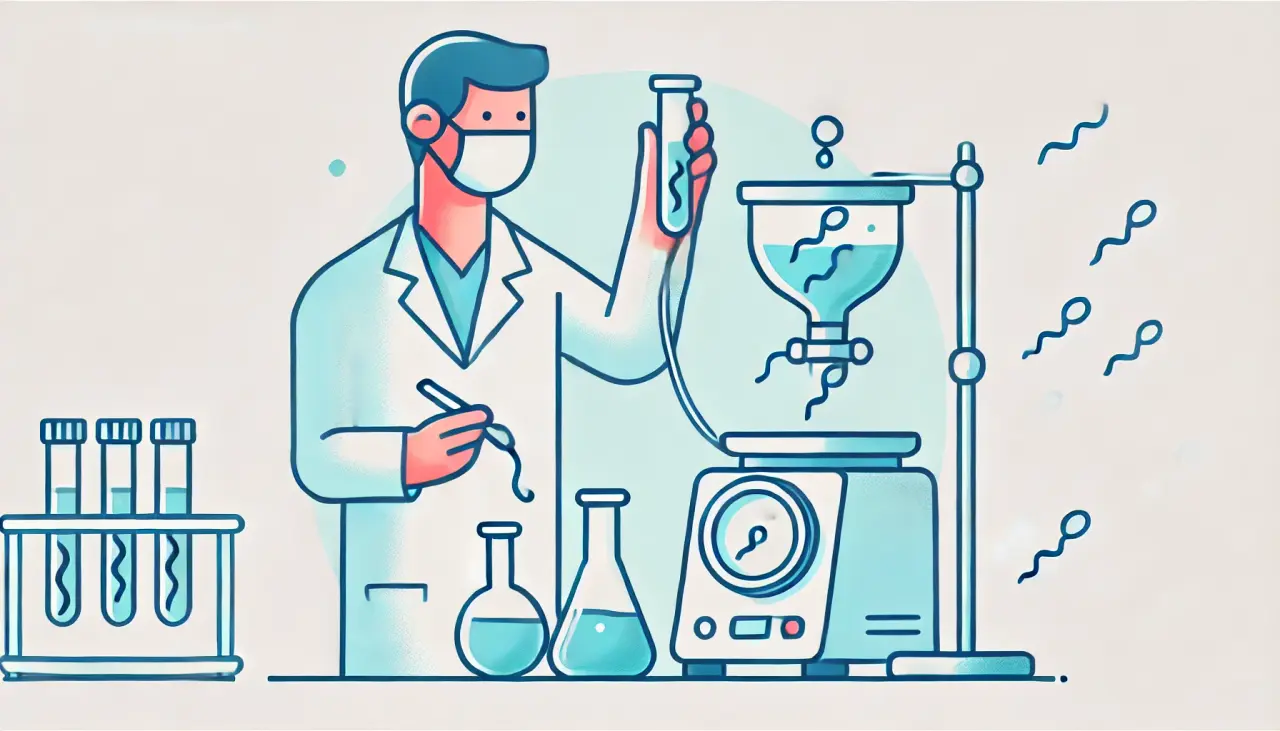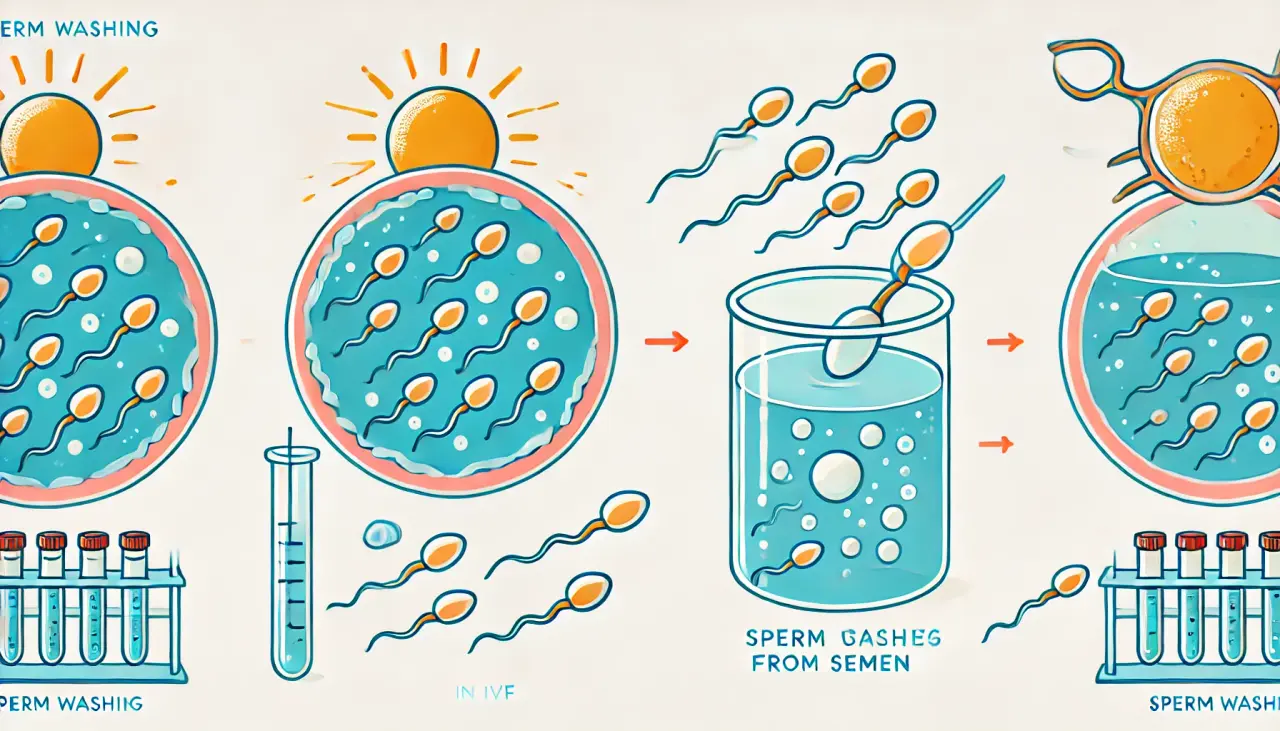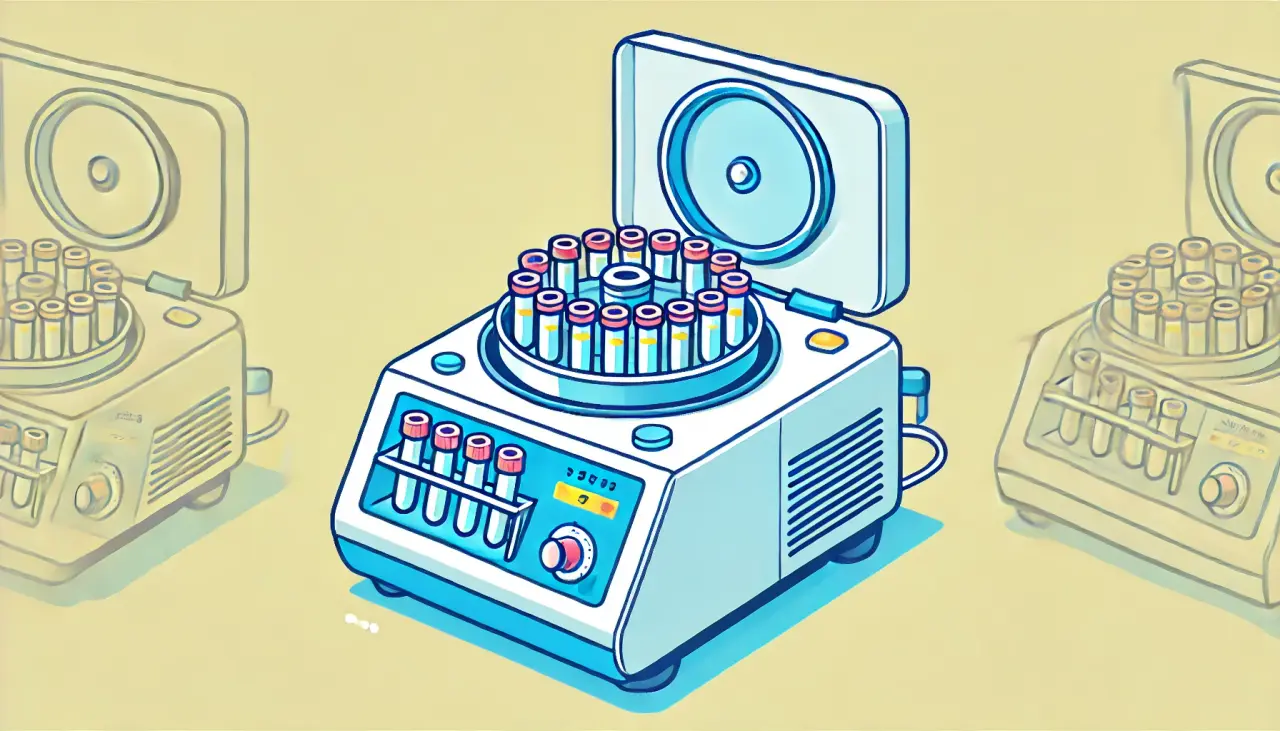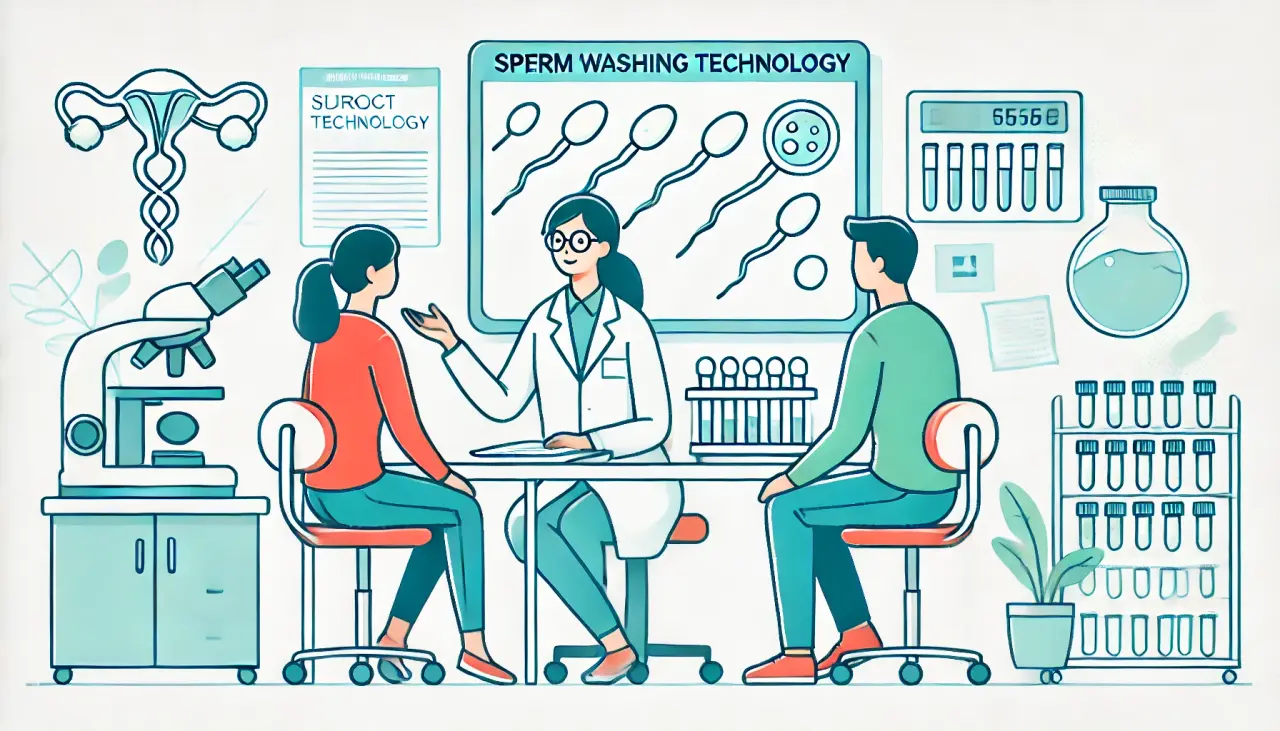
What is Sperm Washing? Understanding Its Role in Surrogacy
Sperm washing is a medical procedure used in assisted reproductive technologies to optimize sperm quality, primarily for IVF and artificial insemination. This technique is essential for intended parents, especially for those with fertility issues or viral infections like HIV. By removing impurities and isolating healthy, motile sperm, sperm washing plays a crucial role in increasing the chances of successful conception. In surrogacy, it also helps prevent the transmission of infections such as HIV.

How is Sperm Washing Done?
There are three main methods used in sperm washing in surrogacy:
- Simple Washing: Semen is diluted with a culture medium and centrifuged, allowing the sperm to separate from other components.
- Swim-Up Method: Sperm are encouraged to swim up into a nutrient-rich culture medium, leaving behind debris and non-motile sperm.
- Density Gradient Centrifugation: Sperm are separated by density, with the healthiest sperm settling at the bottom for collection.
The goal of sperm washing is to select high-motility sperm for insemination, improving fertilization success rates.
Sperm Washing for HIV-Positive Parents
How does sperm washing prevent HIV transmission in surrogacy? HIV exists in semen, not in sperm itself. Sperm washing separates sperm from the semen, eliminating the HIV virus. This technique enables HIV-positive individuals to safely conceive children through surrogacy without transmitting the virus to the surrogate or the child.
Before the process begins, intended parents undergo thorough medical evaluations, including viral load tests and immune function assessments, to ensure the safety of the procedure. This technology has been a breakthrough for HIV-positive individuals, allowing them to experience parenthood without the fear of HIV transmission.

Sperm Washing and Its Applications in Surrogacy
Sperm washing is not just for individuals with viral infections; it is also beneficial for those with fertility issues, such as low sperm motility, immune system-related infertility, and semen abnormalities. By removing impurities like white blood cells and bacteria, sperm washing enhances sperm quality, improving the chances of fertilization in both IVF and artificial insemination.
Additionally, sperm washing is crucial for surrogacy for HIV-positive parents, providing a safe way to prevent infection and ensuring a healthy pregnancy for the surrogate mother.
Cost of Sperm Washing in Different Countries
Sperm washing can vary in cost depending on the country and clinic. Here is an estimated cost breakdown:
- Kyrgyzstan: $1,500 – $7,000
- Thailand: $1,500 – $4,000
- Ukraine: Around $1,500
- USA: $10,000 – $15,000
The costs generally include the medical evaluations, sperm washing procedures, and IVF treatments.

Is Sperm Washing Safe and Reliable?
Yes, sperm washing is a well-established and reliable technology in reproductive medicine. The procedure effectively separates healthy sperm from semen, ensuring that only the highest-quality sperm are used for insemination. With no documented cases of HIV transmission through sperm washing, it is considered a safe option for HIV-positive individuals pursuing surrogacy.